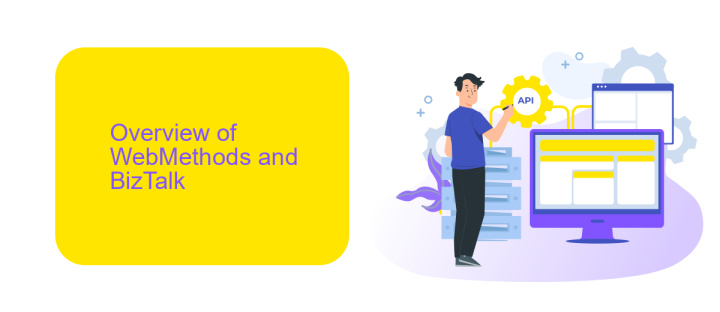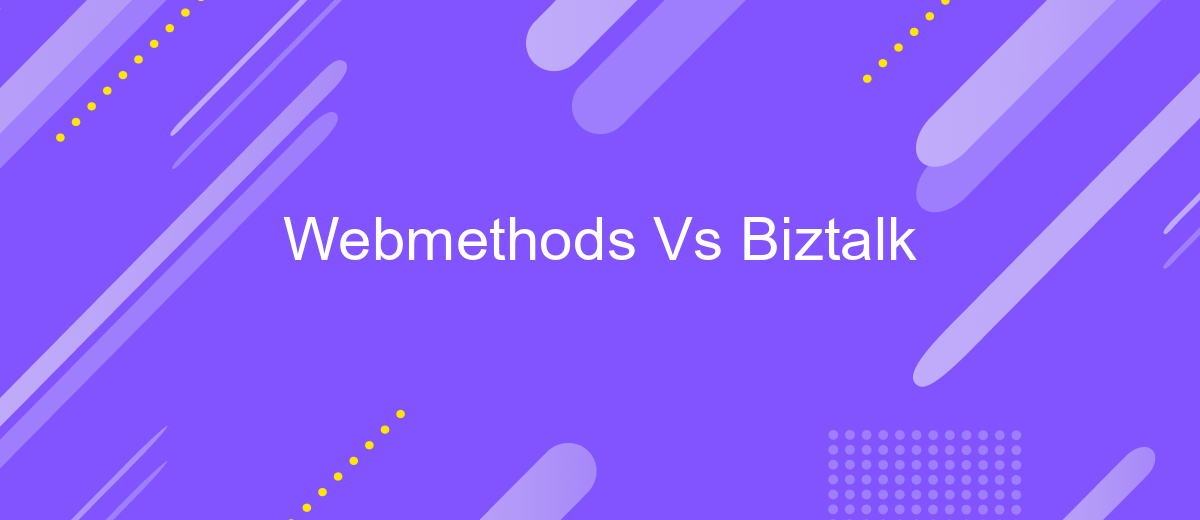Webmethods Vs Biztalk
When it comes to enterprise application integration, two prominent players often come to mind: WebMethods and BizTalk. Both platforms offer robust solutions for connecting diverse systems and streamlining business processes. This article delves into a comparative analysis of WebMethods and BizTalk, examining their features, performance, and suitability for various business needs to help you make an informed decision.
Introduction
In today's digital landscape, seamless integration of various software applications is crucial for businesses to maintain efficiency and competitiveness. Two prominent solutions in this realm are Webmethods and BizTalk, both of which offer robust tools for integrating disparate systems and automating business processes. Understanding the strengths and limitations of each can help organizations make informed decisions about which platform best suits their needs.
- Webmethods: Known for its comprehensive suite of tools that support a wide range of integration scenarios, including cloud, on-premise, and hybrid environments.
- BizTalk: A Microsoft product that excels in enterprise application integration (EAI) and business-to-business (B2B) communication, leveraging familiar Microsoft technologies.
- ApiX-Drive: A versatile service that simplifies the integration process by allowing users to connect various applications and automate workflows without extensive coding knowledge.
Both Webmethods and BizTalk have their unique advantages, making them suitable for different organizational needs. While Webmethods offers flexibility and extensive support for various integration scenarios, BizTalk provides a robust platform for those already invested in the Microsoft ecosystem. Additionally, services like ApiX-Drive can further streamline the integration process, making it easier for businesses to connect their applications and enhance operational efficiency.
Overview of WebMethods and BizTalk

WebMethods and BizTalk are two prominent integration platforms designed to streamline business processes and facilitate seamless data exchange between different systems. WebMethods, developed by Software AG, offers a robust suite of tools for enterprise application integration, business process management, and B2B integration. It provides extensive support for various protocols and data formats, ensuring compatibility across diverse IT environments. WebMethods stands out for its flexibility and scalability, making it a suitable choice for large enterprises with complex integration needs.
BizTalk, on the other hand, is Microsoft's integration and connectivity server solution. It enables businesses to automate workflows, connect disparate systems, and manage business processes efficiently. BizTalk integrates seamlessly with other Microsoft products, such as Azure and SQL Server, providing a cohesive ecosystem for organizations already invested in Microsoft technologies. Both platforms offer comprehensive solutions for integration challenges, but the choice between them often depends on specific business requirements and existing technological infrastructure. For those looking for a more user-friendly and cost-effective integration solution, services like ApiX-Drive can be a valuable alternative, offering easy-to-use tools for setting up integrations without extensive technical expertise.
Comparison of Features and Functions

When comparing Webmethods and Biztalk, it's essential to consider their features and functions to determine which platform better suits your integration needs. Both platforms offer robust capabilities, but they differ in several key areas.
- Integration Capabilities: Webmethods provides extensive support for various protocols and data formats, whereas Biztalk excels in integrating with Microsoft products.
- Scalability: Webmethods offers flexible scaling options, making it ideal for large enterprises. Biztalk, on the other hand, is optimized for environments heavily reliant on Microsoft technologies.
- Ease of Use: Webmethods has a more user-friendly interface, while Biztalk can be more complex but offers deep customization.
- Cloud Integration: Both platforms support cloud integration, but Webmethods has a slight edge with its seamless integration with ApiX-Drive, a service that simplifies the setup of integrations.
- Support and Community: Webmethods boasts a large community and extensive documentation. Biztalk also has strong support, particularly for users within the Microsoft ecosystem.
Ultimately, the choice between Webmethods and Biztalk depends on your specific requirements, existing infrastructure, and the level of integration needed. Evaluating these factors will help you make an informed decision.
Advantages and Disadvantages

When comparing Webmethods and Biztalk, each platform offers distinct advantages and disadvantages. Webmethods is known for its robust integration capabilities and flexibility, making it a popular choice for large enterprises. Biztalk, developed by Microsoft, excels in seamless integration with other Microsoft products and is highly reliable for business process automation.
One of the key advantages of Webmethods is its extensive support for various protocols and standards, which allows for greater customization. On the other hand, Biztalk’s strong point lies in its user-friendly interface and tight integration with the Microsoft ecosystem, which can be a significant advantage for businesses already using Microsoft services.
- Webmethods Advantages: High flexibility, extensive protocol support, scalability.
- Webmethods Disadvantages: Steeper learning curve, higher cost.
- Biztalk Advantages: User-friendly, excellent Microsoft integration, reliable.
- Biztalk Disadvantages: Limited customization, dependency on Microsoft environment.
For businesses looking to simplify integration processes, services like ApiX-Drive can be highly beneficial. ApiX-Drive offers easy-to-use tools for setting up integrations without extensive technical knowledge, making it a valuable addition to either Webmethods or Biztalk implementations.
Conclusion
In conclusion, both Webmethods and Biztalk offer robust solutions for enterprise integration, each with its unique strengths and features. Webmethods excels in providing a comprehensive suite for application integration, business process management, and B2B integration, making it a versatile choice for large-scale enterprises. On the other hand, Biztalk shines with its deep integration with Microsoft products and services, offering seamless connectivity and ease of use for organizations heavily invested in the Microsoft ecosystem.
When choosing between Webmethods and Biztalk, it is crucial to consider the specific needs and existing infrastructure of your organization. Additionally, leveraging integration services like ApiX-Drive can further streamline the process, allowing for efficient and automated data synchronization between various applications. ApiX-Drive's user-friendly interface and extensive range of supported apps make it an excellent complement to either platform, enhancing overall operational efficiency and reducing manual workload.


FAQ
What are the primary differences between Webmethods and Biztalk?
Which platform is better for cloud-based integrations?
How does the learning curve compare between Webmethods and Biztalk?
What are the deployment options for Webmethods and Biztalk?
Are there any third-party services that can assist with the integration and automation setup for these platforms?
Apix-Drive is a simple and efficient system connector that will help you automate routine tasks and optimize business processes. You can save time and money, direct these resources to more important purposes. Test ApiX-Drive and make sure that this tool will relieve your employees and after 5 minutes of settings your business will start working faster.

